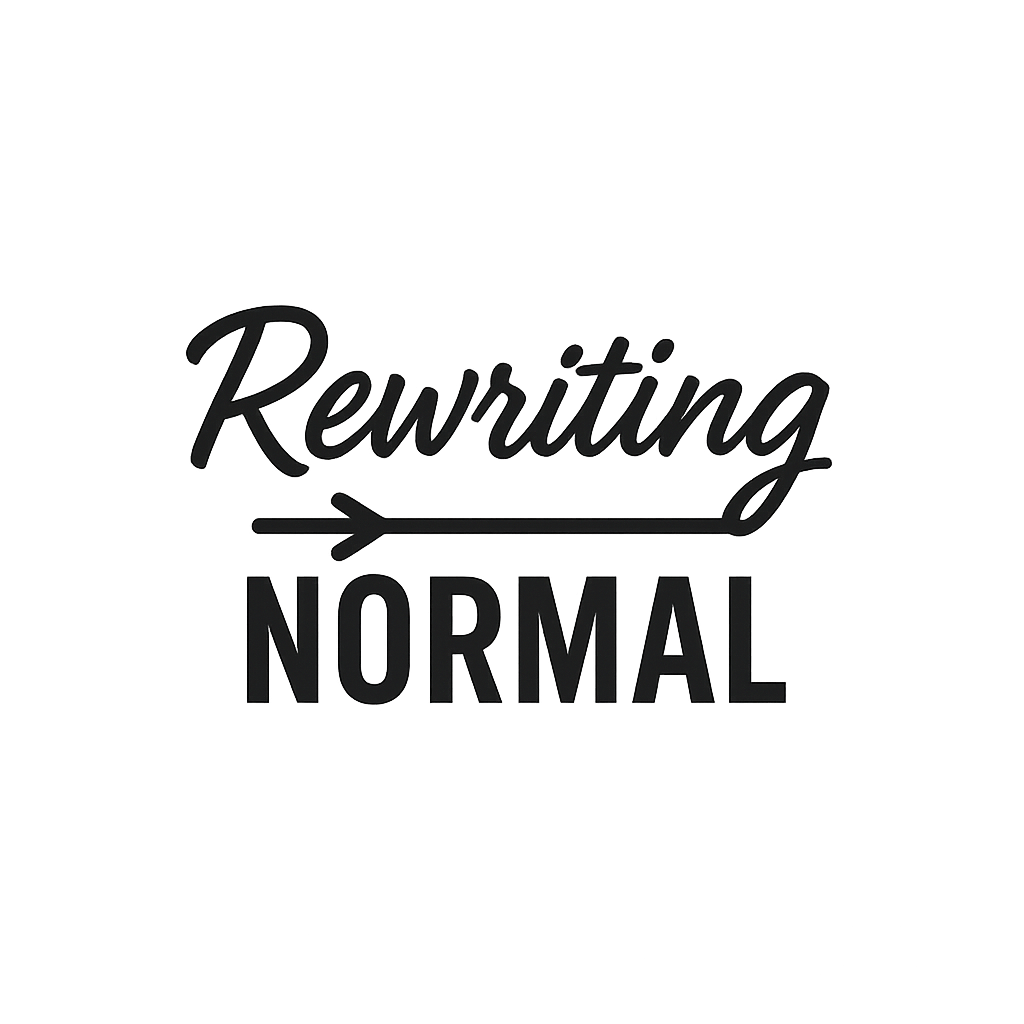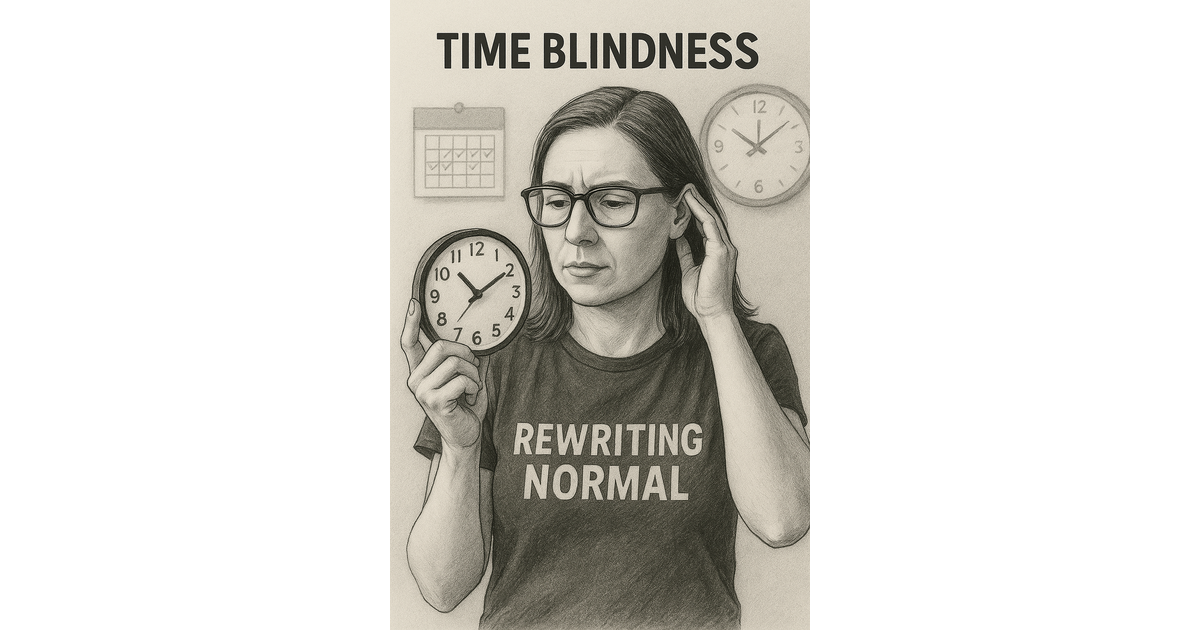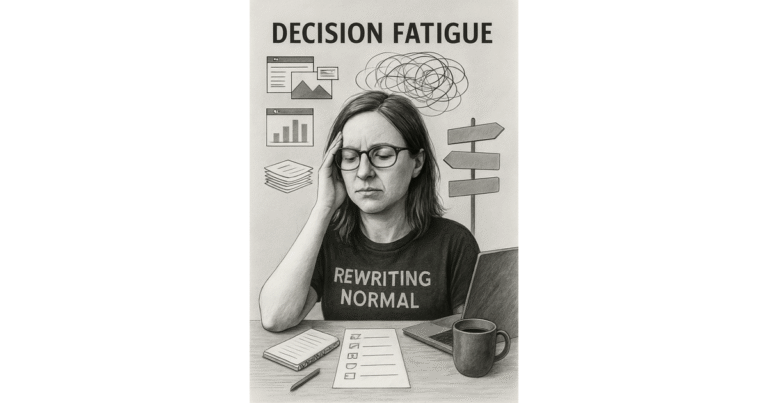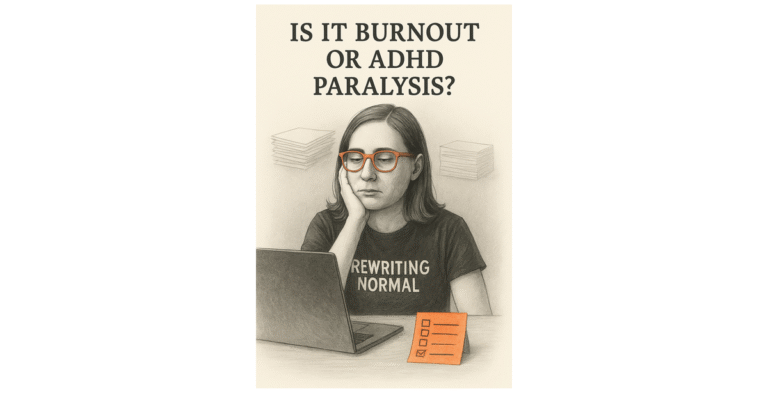Time Blindness: The ADHD Symptom No One Warned Me About
Looking back, I was already compensating for time struggles — I just didn’t realise it.
But after I became a mum, the cracks started showing. The routines, the unpredictability, the sheer number of moving parts — everything about parenting made time blindness harder to hide.
That’s when I started feeling like I was failing at something basic — like being an adult. I couldn’t understand how other parents were juggling after-school activities while I was barely getting us through swimming lessons without a meltdown (mine or the kids’).
I now realise ADHD was always there. But becoming a parent is what finally made it undeniable.
I’m Not Often Late. But It Still Hurts.
On the surface, I don’t “look like” I struggle with time.
I’m usually early. I show up. I’ve held jobs with hard deadlines — 11 magazine campaigns a month, major public sector launches — and I’ve delivered every time.
But what no one saw were the things I did to hold it all together.
I was panicking on the inside but trying not to let it show on my face. I’d eat too much sugar close to deadlines. I always had a backup plan in mind in case my best-case plan failed — I’d pre-empt issues before they happened.
I still met deadlines, but not because I was breezing through.
I met them because I was planning for the parts where my brain might not cooperate, and doing it over and over until it stuck.
It’s like the day becomes one big “waiting to leave” zone — and it ruins the rest of it.
If you’re after a more clinical explanation, Psychology Today has a great overview of time blindness and ADHD.
What Time Blindness ADHD Really Feels Like
Time blindness doesn’t feel poetic.
It happens without you realising it’s happened — and yet you know it’ll happen again.
Sometimes I build workarounds and they help. Other times… they don’t. I’m still learning not to blame myself when they fail.
There’s guilt when I suddenly realise I don’t have 20 minutes left — I have 5.
There’s shame when I think I should’ve “managed better.”
And there’s confusion when I remember I’ve done it before — and still fell into the same trap.
I don’t feel lazy. I’ve never thought I was lazy.
But I’ve felt inconsistent. Incompetent. Like my ability to manage time only works when everything aligns perfectly — and when it doesn’t, I crash hard.
What You Don’t See
I used to hide how much work it took to show up on time.
Even from friends. Even from myself.
I’d try to brush it off: “Oh, I just like being early.”
But really, being early was the only way I could guarantee I wouldn’t be late. And the cost of getting there — mentally, emotionally — was so high.
Sometimes, all it takes is one upcoming event to derail my whole day.
I’ll watch the clock. I’ll try to get dressed “at the right moment.” I’ll set alarms — but still forget to turn the sound on. I’ll open my phone to check the time and find myself down a rabbit hole, only to resurface and realise 30 minutes have disappeared.
It’s exhausting. And when kids are involved, it multiplies.
The Little Systems That Help (Sort Of)
I’ve built workarounds — alarms for when to get ready, alarms for when to leave.
Packing bags early. Making lists the night before. Tag-teaming with my partner to wrangle the kids.
Sometimes it helps. Sometimes it doesn’t. I have compiled some of what has worked into a free printable ADHD time blindness tracker.
I’d pack the swimming bags days in advance — as soon as the togs and towels were clean and dry — because I knew if I left it, I might not find everything when I needed it. That kind of advance planning might sound like being “organised,” but it’s really the constant stress of trying to stay ahead of the next derailment. Even for the “simple” things.
Even something as small as “wait 30 seconds before applying moisturiser” can throw me — because I genuinely can’t tell if 30 seconds have passed. And that’s just me. Add two small humans with their own distractions and delays, and suddenly we’re either weirdly early… or flying out the door in a fluster.
It’s not about effort. I put in so much effort.
What I Know Now
Now that I have a name for it — time blindness — I’m trying to be more compassionate.
It’s not easy. “Be kind to yourself” doesn’t fix the part where you still need to be somewhere by 3pm.
But awareness gives me language. It lets me say to my husband, “This thing later might hijack my whole day.” And he gets it. That helps.
It also helps me explain things to my kids. To show them what time feels like for me — and maybe for them too.
What I Wish People Understood About Time Blindness in ADHD
Just because someone is early doesn’t mean they find time easy.
Just because someone meets deadlines doesn’t mean they aren’t battling behind the scenes.
I don’t disrespect other people’s time.
In fact, I probably worry more about it than most.
I just wish more people understood that time isn’t neutral for all of us.
For some of us, it bends — and never in our favour.
🎁 Free Download
Want to reflect on your own time patterns?
Grab the Time Blindness Awareness Tracker — a free printable worksheet to help ADHDers spot time slips, dopamine drops, and energy fog in real life.
👉 Download the Free Tracker
I explain more about how this blog came to be over on the About page.








